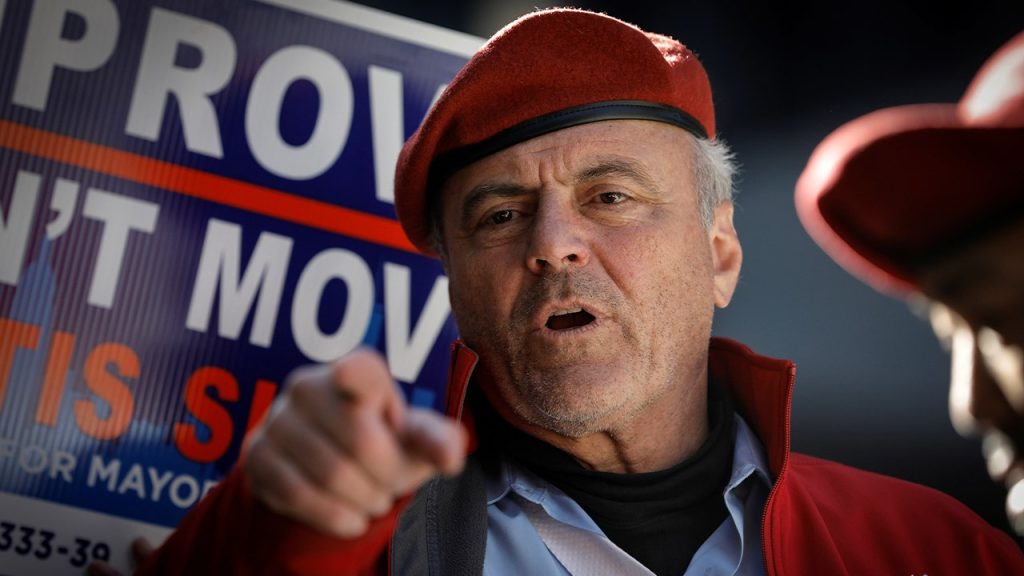Curtis Sliwa, founder of the Guardian Angels, a volunteer citizen patrol group, has announced the organization’s return to patrolling the New York City subway system. This decision follows a tragic incident where a woman was burned to death on a subway train during Christmas week, highlighting what Sliwa calls a “crime crisis” in the city. He directly connects the rise in crime to New York City’s sanctuary city policies, arguing that the influx of migrants, some of whom he claims have criminal records, has contributed to the problem. Sliwa emphasizes the vulnerability of homeless individuals seeking shelter in the subway system due to overcrowded and unsafe shelters. He criticized Mayor Eric Adams and City Hall for downplaying the severity of the situation and failing to address the visible rise in crime.
The Guardian Angels, recognizable by their red berets and jackets, have a long history in New York City, dating back to their founding in 1979. They were a prominent presence on the subway during periods of high crime and homicide rates in the past. Sliwa’s announcement marks a return to these roots, with the group aiming to increase their presence and conduct wellness checks on homeless individuals, alerting authorities to potential problems. This resurgence comes amidst a reported 60% increase in subway murders, with eight fatalities recorded on trains in 2024 compared to five in the same period of 2023. Sliwa likened the current situation to the late 1970s, suggesting the need for a similar rapid expansion of the Guardian Angels to address the escalating crisis.
Mayor Adams’ office has responded critically to the Guardian Angels’ return, characterizing it as a theatrical stunt rather than a genuine solution. They highlighted the administration’s efforts to increase police presence in the subway, deploying 1,000 officers daily, and cited a decrease in overall and transit crime. Adams’ spokesperson emphasized the mayor’s commitment to public safety, referencing his frequent subway rides to engage with riders and assess their concerns. While acknowledging the ongoing challenges, the administration maintains their focus on practical solutions, contrasting their approach with what they perceive as attention-seeking behavior by the Guardian Angels.
Sliwa countered this criticism by challenging Mayor Adams to join him on daily subway patrols, arguing that direct experience would reveal the true extent of the problems. He reiterated his offer to accompany the mayor on patrols, highlighting the Guardian Angels’ willingness to contribute to public safety. Sliwa criticized the city’s prioritization of housing migrants over addressing the needs of homeless New Yorkers seeking refuge in the subway system. He argued that the mayor’s focus on housing migrants while neglecting the city’s own homeless population demonstrates a misplaced allocation of resources. He insists that the administration’s failure to provide adequate public safety has created a vacuum that the Guardian Angels are stepping in to fill.
Sliwa attributes a significant portion of the subway attacks to “emotionally disturbed people” living in the system and calls for these individuals to receive mental health care. He condemns the city’s failure to address this vulnerable population, likening subway trains to “moving hotels” for the homeless. He emphasizes that these attacks pose a threat to everyone in the city and argues that failing to address the root causes of this violence constitutes a collective failure. He believes the city’s focus on housing migrants should be redirected to support its own citizens struggling with homelessness and mental health issues within the subway system.
Sliwa’s stance is that the Guardian Angels’ return is a necessary response to the city’s failure to adequately address the rising crime rates and the deteriorating conditions in the subway system. He contends that if the city were effectively managing these issues, the Guardian Angels’ presence wouldn’t be necessary. He views the public’s acceptance of the Guardian Angels, and their desire for increased police presence, as evidence of the city’s shortcomings in ensuring public safety. He frames the Guardian Angels’ efforts as a public service provided out of necessity, not a publicity stunt, and argues that the administration should welcome any assistance offered in addressing the current crisis.

